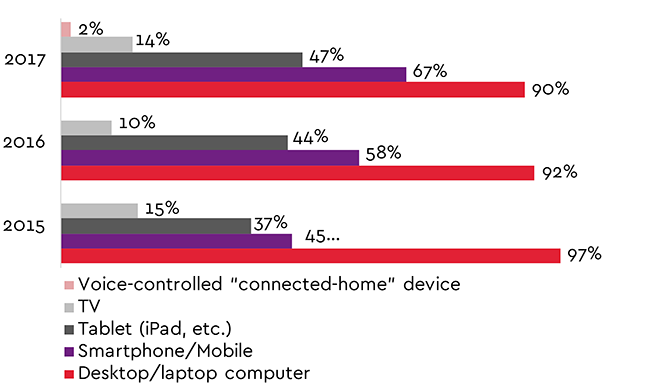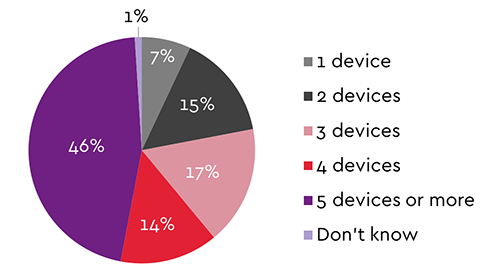
The Canadian Internet Registration Authority (CIRA) has released Canada’s Internet Factbook, showcasing data related to online habits and perceptions.
According to the Factbook, nearly three quarters (71 percent) of Canadians spend between three to four hours on the internet each day. Interestingly, 46 percent of Canadians are willing to get rid of fast food for one year rather than lose their connection to the internet. Meanwhile, 34 percent of Canadians would get rid of alcohol and nine percent would give up sex for internet access.

Additionally, the Factbook says 90 percent of Canadians use their desktops and laptops to connect to the internet and 67 percent use their smartphones. Moreover, 46 percent of Canadians have five or more internet-connected devices within their homes.
91 percent of Canadians use the internet for e-mailing, according to the CIRA. Following e-mail, Canadians often use the internet for banking, as well as the news and current events. Social media engagement is now in fourth place, dropping a spot from last year, when it was above news and current events.
27 percent of Canadians spend one to two hours a day watching TV, movies and videos online.

“The first step to building a better online Canada is understanding the experiences, perceptions and needs of Canadian internet users,” says Byron Holland, CIRA president and CEO in a statement to MobileSyrup. “The data found in Canada’s Internet Factbook provides a comprehensive look at the Canadian internet and we hope this information will influence innovation, funding and policy decisions so Canadians can have the internet they want and deserve.”
While Canada’s usage of the internet seems substantial, Canada ranks 25th in the world in the International Telecommunication Union’s (ITU’S) ICT Development Index.
The rankings are based on the internationally agreed information and communications technologies indicator, which includes information regarding a person’s access, use and internet skills.
This score is based off 2016’s International Telecommunication Union’s data. Canada has dropped two places since last year’s IDI rankings, which is more than any of the G7 nations.
The Internet Factbook’s collected its data from a study conducted by market research firm The Strategic Counsel as part of CIRA’s annual Internet Tracking study. The Strategic Counsel used an online panel with a sample size of 1,200 adults (18 and older), taken in March 2017, to create the Factbook.
More statistics regarding Canada’s Internet Factbook can be found here.
Source: Canada’s Internet Factbook


